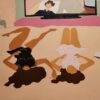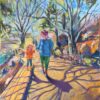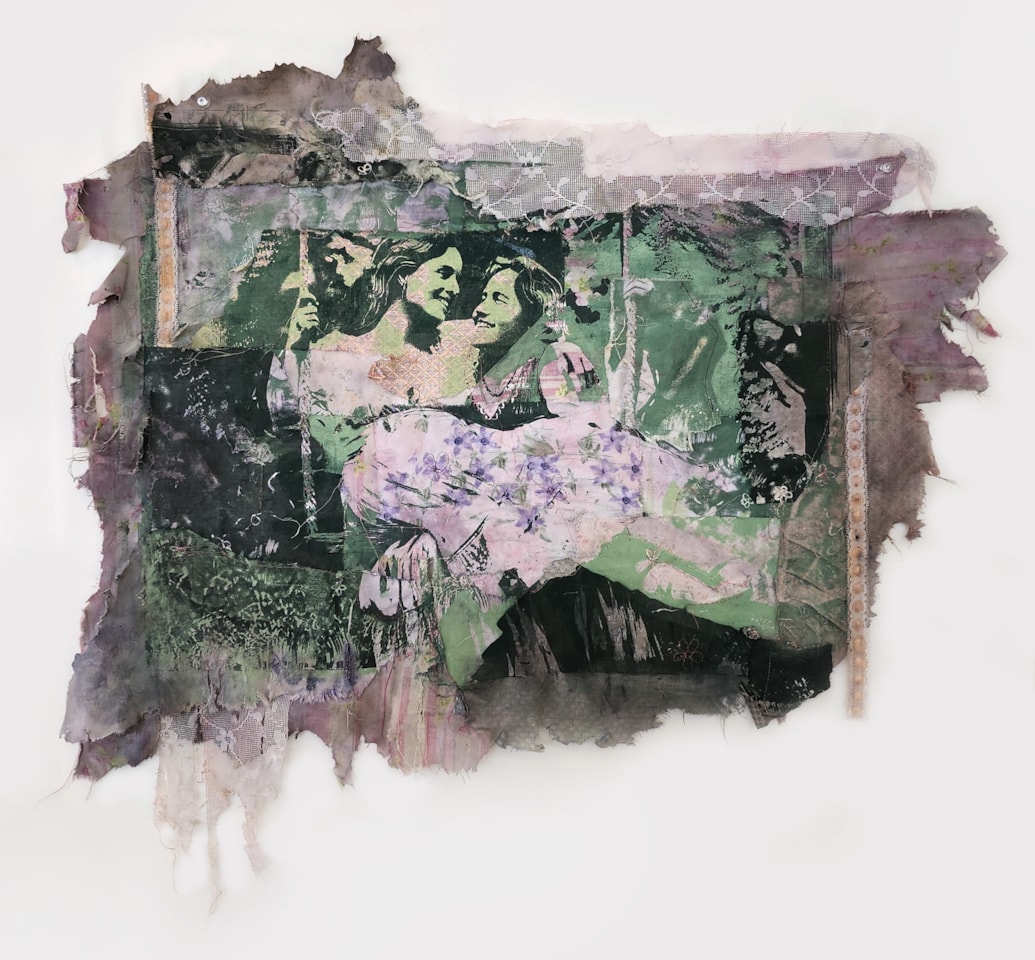ARTIST STATEMENT
As a POC and lesbian artist I explore the use of nontraditional materials and techniques found within the world of textiles to examine the intersectional history of women and lesbianism. These methods include sewing, embroidery, and forms of quilting due to their existence outside of traditionally accepted fine art methods. The use of found objects also plays an important role in my artistic practice as the textiles are often sourced through thrifted dollies, old linens and fabrics passed down from my great-grandmother. This is then paired with found vintage photographs alongside AI-generated images. These found objects and materials are chosen due to their discarded nature and thus, the ability to play into the unknown lives of the previous owners.
The use of AI imagery follows a similar train of thought but allows me to tap into a wider archive of images and construct a specific scenario that I am unable to find on my own via vintage photography. A common theme within these images is the usage of pairs, with some imagery being more overt in their queerness while others remain subtle to the point they can be dismissed as just “girlfriends” in a platonic sense rather than a romantic one. Therefore, both types of images aid in the construction of imagined realities and expose narratives that are socially repressed.
ABOUT THE ARTIST
Born and raised in The Central Valley of California, Liliana Figueroa-Larios is mixed media artist set to graduate from CSU Stanislaus with her B.F.A alongside a minor in art history this upcoming summer. During her time in undergrad she has participated in a variety of both on campus and off campus shows. These include a solo show, Someone Will Remember Us Even in Another Lifetime, at Stan State Art Space. In addition to the, Stanislaus State Juried Student Exhibition in which she received an honorable mention. As an emerging artist she strives to make room for LGBTQ+ art within institutional spaces in order to highlight the internal repression and struggle of being seen or represented in a heteronormative society. Due to her experiences of being a self-identified lesbian women of color.
© Liliana Figueroa-Larios



